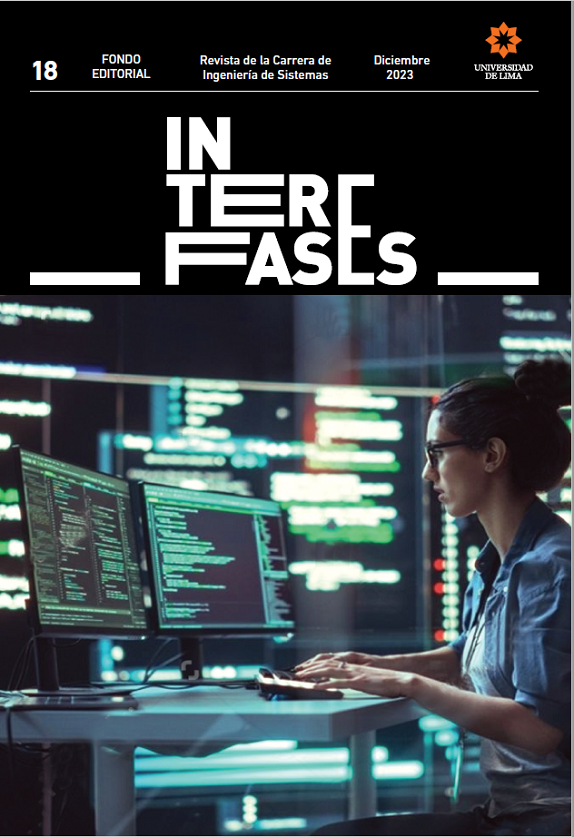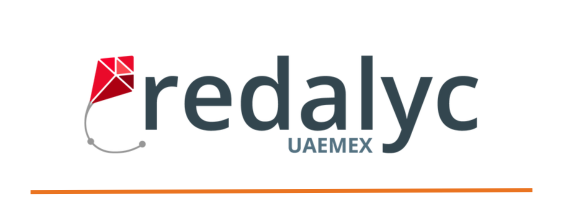Mapeamento dos aspectos contextuais que influenciam as mulheres na área de informática na América Latina
DOI:
https://doi.org/10.26439/interfases2023.n018.6610Palavras-chave:
mulheres, políticas, igualdade, liderança, STEM, América LatinaResumo
Considerando a já reconhecida sub-representação das mulheres na área de informática, o projeto em andamento “Dados abertos latino-americanos para políticas de igualdade de gênero centradas no liderança em STEM” tem como objetivo apoiar a melhoria das políticas institucionais para promover a igualdade de gênero em STEM. A atividade 4 deste projeto é responsável por mapear os fatores, atores e políticas que influenciam o desenvolvimento profissional e a liderança das mulheres em STEM, assim como coletar e analisar esses dados. Para explorar esses fatores, foi realizado tanto um estudo de mapeamento sistemático quanto um mapeamento de literatura cinza. Os resultados abrangem 8 tipos de fatores contextuais e 196 subfatores. Algumas questões de competência também foram levantadas, fornecendo dados valiosos para os próximos passos.
Downloads
Referências
Bonato, S. (2018). Searching the grey literature: a handbook for searching reports, working papers, and other unpublished research. Rowman & Littlefield.
García-Peñalvo, F. J. (2019). Women and STEM disciplines in Latin America: the W-STEM European Project. Journal of Information Technology Research, 12(4) http://repositorio.grial.eu/handle/grial/1706
Hamilton, M., Luxton-Reilly, A., Augar, N., Chiprianov, V., Gutierrez, E. C., Duarte, E. V., Hu, H. H., Ittyipe, S., Pearce, J. L., Oudshoorn, M., & Wong, E. (2016). Gender equity in computing: International faculty perceptions and current practices. En Proceedings of the 2016 ITiCSE Working Group Reports, ITiCSE 2016 (pp. 81-102). Association for Computing Machinery, Inc. https://doi.org/10.1145/3024906.3024911
Hyvönen, E. (2020). Linked Open Data Infrastructure for Digital Humanities in Finland. HN 2020 Digital Humanities in the Nordic Countries. Proceedings of the Digital Humanities in the Nordic Countries 5th Conference, 254-259, CEUR Workshop Proceedings, vol. 2612, Riga, Latvia, October, 2020. http://urn.fi/URN:NBN:fi:aalto-202101251587
Kitchenham, B., & Charters, S. (2007). Guidelines for performing systematic literature reviews in software engineering. Technical report EBSE-2007-01. Keele University and Durham University Joint Report. https://www.elsevier.com/__data/promis_misc/525444systematicreviewsguide.pdf
Lappe, A. K. R., Torales-Sanchez, D., Fuentes, A. B. G., & Caratozzolo, P. (2021). Work in progress: addressing barriers for women in STEM in Mexico. 2021 IEEE Global Engineering Education Conference. https://doi.org/10.1109/EDUCON46332.2021.9453901
Longe, O. M., & Ouahada, K. (2019). A literature review on challenges and opportunities for women in engineering. 2019 IEEE AFRICON. https://doi.org/10.1109/AFRICON46755.2019.9133955
McGee, K. (2018). The influence of gender, and race/ethnicity on advancement in information technology (IT). Information and Organization, 28(1), 1-36. https://doi.org/10.1016/j.infoandorg.2017.12.001
Moghaddam, A. (2006). Coding issues in grounded theory. Issues in educational research,16(1), 52-66. https://www.iier.org.au/iier16/moghaddam.html
OECD. (2019). PISA 2018 Results (vol. I). OECD. https://www.oecd.org/Petersen, K., Vakkalanka, S., & Kuzniarz, L. (2015). Guidelines for conducting systematic mapping studies in software engineering: an update. Information and Software Technology, 64, 1-18. https://doi.org/10.1016/j.infsof.2015.03.007
Santos Carvalho, D., Baeso Grimoni, J., Svaab, H., & Pereira, S. (2018). The presence of black women in brazilian engineering. PAEE+ALE’ 2018 Proceedings, Brasilia.
Unesco. (2017). Cracking the code: girls’ and women’s education in science, technology, engineering and mathematics (STEM). https://doi.org/10.54675/qyhk2407
Unesco. (2020). Women in science 2020. Fact Sheet 60, June 2020. https://uis.unesco.org/sites/default/files/documents/fs60-women-in-science-2020-en.pdf
Wang, M.-T., & Degol, J. L. (2017). Gender gap in science, technology, engineering, and mathematics (STEM): Current knowledge, implications for practice, policy, and future directions. Educational Psychology Review, 29(1), 119-140. https://doi.org/10.1007/s10648-015-9355-x
World Economic Forum. (2020). Global Gender Gap Report 2020. https://www3.weforum.org/docs/WEF_GGGR_2020.pdf
Downloads
Publicado
Edição
Seção
Licença
Los autores/as que publiquen en esta revista aceptan las siguientes condiciones:
Los autores/as conservan los derechos de autor y ceden a la revista el derecho de la primera publicación, con el trabajo registrado con la licencia de atribución de Creative Commons, que permite a terceros utilizar lo publicado siempre que mencionen la autoría del trabajo y a la primera publicación en esta revista.
Los autores/as pueden realizar otros acuerdos contractuales independientes y adicionales para la distribución no exclusiva de la versión del artículo publicado en esta revista (p. ej., incluirlo en un repositorio institucional o publicarlo en un libro) siempre que indiquen claramente que el trabajo se publicó por primera vez en esta revista.
Se permite y recomienda a los autores/as a publicar su trabajo en Internet (por ejemplo en páginas institucionales o personales) antes y durante el proceso de revisión y publicación, ya que puede conducir a intercambios productivos y a una mayor y más rápida difusión del trabajo publicado (vea The Effect of Open Access).
Última actualización: 03/05/21






